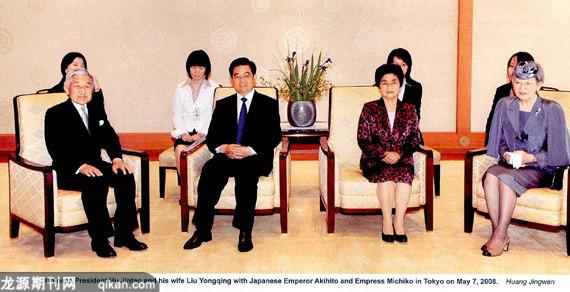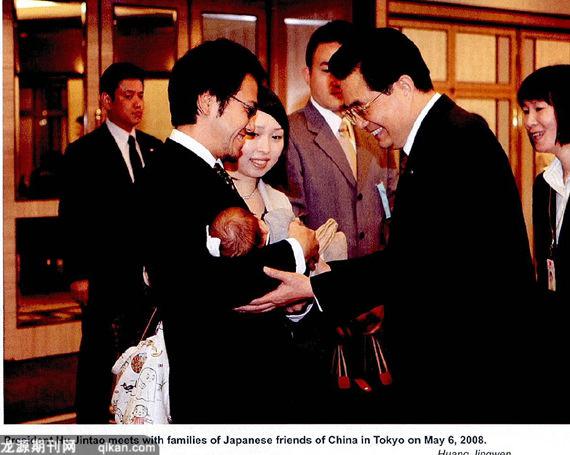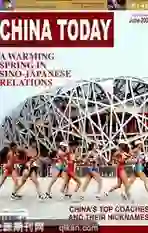A Warming Spring in Sino-Japanese Relations
2008-06-25
CHINESE President Hu Jintao traveled to Japan on May 6 for a five-day visit, the first state visit by a Chinese president to Japan in 10 years, signaling a historic warming of relations between the two countries. During the trip President Hu held discussions with Japanese Prime Minister Yasuo Fukuda, was welcomed by Japanese Emperor Akihito and Empress Michiko, and also met separately with leaders and representatives of Japans major political parties. On May 8, he delivered a lecture at Tokyos Waseda University in which he offered a five-point proposal to further strategic bilateral relations between the two Asian economic giants.

Following initial talks on May 7, President Hu and Prime Minister Fukuda said they reached broad agreement that China and Japan, as close neighbors and vital players in Asia and the world, must together forge a path of peace, friendship and cooperation. The Chinese president said that Sino-Japanese relations were at a historic turning point, and that important new opportunities for further bilateral development should not be missed. He said that both sides should continue working together to establish strategic and mutually beneficial relations. Prime Minister Fukuda praised the consensus demonstrated by the two sides, and vowed to pursue a policy of cooperation and mutual advantage.
The two leaders signed a six-point joint statement aimed at securing the strategic interests of their two nations and promoting mutually beneficial relations, and also agreed to jointly tackle the issues of disputed oil and gas rights in the East China Sea and climate change. They also said that history needed to be faced squarely with an eye to the future, and both reaffirmed their commitment to a partnership that took the interests of the other party into account.
Also agreed upon was the establishment of a mechanism for regular state visits in an effort to enhance bilateral ties, and in his speech at Waseda University, President Hu invited 100 of the universitys students to visit China.
The trip is widely seen as a further improvement in Sino-Japanese relations, which suffered a serious setback in 2005 as the result of then-Japanese Prime Minister Junichiro Koizumis repeated visits to the Yasukuni Shrine. The shrine honors Japans World War II military dead, including war criminals accused of committing atrocities in China.
An initial thaw in relations began with an “ice-breaking” visit by Japanese Prime Minister Shinzo Abe to China in October 2006, a trip that was followed up with a reciprocal visit by Chinese Premier Wen Jiabao in April 2007, and Fukudas “spring-herald” visit to China in December of the same year.
Chinese President Hu Jintao sent a message to Japanese readers via a
Japanese-language magazine, Peoples China, prior to his visit to Japan.
The full text of the message is:
As China and Japan mark the 30th anniversary of the endorsement of the China-Japan Treaty of Peace and Friendship, I am about to make a state visit to Japan. On behalf of the Chinese people, I convey sincere greetings and good wishes to the Japanese people.
During the past 30 years, China and Japan made significant achievements in friendly communication and reciprocal cooperation in all fields, bringing substantial benefits to the people of the two countries and promoting their development. All the achievements deserve to be cherished by the people of the two countries.

The Olympic Games will be held in Asia again after 20 years. It is the Olympic Games of Asia, as well as the world. We welcome Japanese friends to come to Beijing to watch the Games and hope Japanese athletes can achieve good results.
I sincerely hope the people of the two countries can maintain friendship generation after generation and create a brighter future forSino-Japanese friendship.
